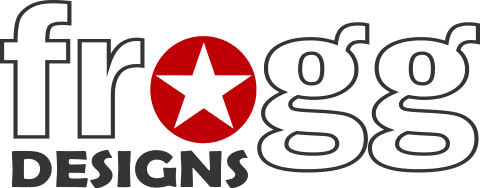A well-crafted logo is essential for any business or brand. A professionally designed logo serves as the cornerstone of a company’s visual identity. It’s not just a symbol; it’s a representation of the brand’s values, personality, and mission. In this article, we will delve into the key elements of a professionally designed logo, including the logo itself, colour palettes, secondary marks, and brand fonts. We’ll also discuss how these elements contribute to increased brand recognizability, consistency, visual options, and cohesiveness.
The Logo: Your Brand’s Identity
The Significance of a Well-Designed Logo
Your logo is the face of your brand, the first thing that potential customers see. It should be unique, memorable, and reflective of your brand’s identity. A well-designed logo communicates professionalism and trustworthiness.
Simplicity and Memorability
One of the cardinal rules of logo design is simplicity. A simple logo is easier for people to remember and recognize. Think of iconic logos like Apple’s apple or Nike’s swoosh. They’re simple, yet instantly recognizable.
Versatility
A professionally designed logo should work well in various contexts and sizes. Whether it’s on a business card or a billboard, your logo should maintain its clarity and impact.
Timelessness
A good logo stands the test of time. Trends come and go, but your logo should remain relevant for years to come. Avoid overly trendy elements that may quickly become outdated.
Colour Palettes: Setting the Tone
The Psychology of Colours
Colours evoke emotions and associations. Your choice of colour palette can significantly impact how your brand is perceived. For example, red can symbolize energy and passion, while blue may convey trust and reliability.
Primary Colors
Your primary brand colours are the foundation of your visual identity. They should align with your brand’s values and message. Coca-Cola’s use of red is a prime example of a strong primary color association.
Secondary Colors
Secondary colours complement your primary palette and provide flexibility in design. They can be used for accents, backgrounds, or to convey specific messages.
Consistency Across Platforms
Maintaining consistent color usage across all marketing materials, both online and offline, helps establish brand recognition and trust.
Secondary Marks: Expanding Your Brand’s Vocabulary
What Are Secondary Marks?
Secondary marks are additional visual elements that support your logo. They can include icons, patterns, or symbols that reinforce your brand’s identity.
Versatility and Application
Secondary marks offer versatility in design and can be used to add depth and character to your branding materials. They provide visual interest and help convey the brand’s story.
Consistency in Design
When using secondary marks, it’s essential to ensure they align with your primary logo and colour palette. Consistency in design elements reinforces brand cohesiveness.
Brand Fonts: Typography Matters
The Role of Typography
Typography is an often underestimated aspect of logo and brand design. The choice of fonts can convey different emotions and messages.
Legibility and Readability
Your brand fonts should be legible across all media and sizes. The wrong font choice can negatively impact the overall perception of your brand.
Font Pairing
Selecting complementary fonts for different purposes, such as headings and body text, is crucial for maintaining a cohesive visual identity.
Increasing Brand Recognizability and Consistency
The Big Picture
All these elements—logo, colour palettes, secondary marks, and brand fonts—work together to create a cohesive and recognizable brand image.
Brand Recognition
A professionally designed logo and consistent branding elements increase your brand’s recognizability. When consumers see your logo or colours, they immediately connect them to your business.
Brand Consistency
Consistency across all your branding materials, from your website to your social media profiles, builds trust and reinforces your brand’s message.
Visual Options and Cohesiveness
The Creative Playground
Having a range of visual elements at your disposal allows for creativity in marketing and advertising. You will be able to adapt your branding to different campaigns while maintaining overall cohesiveness.
Flexibility in Design
Secondary marks, colour palettes, and brand fonts provide options for creative design solutions. They enable you to target various demographics and adapt to different marketing channels.
A professionally designed logo from Frogg Designs is not just a graphic; it’s the embodiment of your brand. It communicates your identity, values, and mission to the world. By carefully considering the elements discussed in this article—logo design, colour palettes, secondary marks, and brand fonts—Frogg Designs will create a visual identity that increases brand recognisability, consistency, visual options, and cohesiveness.
Frequently Asked Questions?
Choosing the right colour palette involves considering your brand’s personality, target audience, and industry. Conduct research on colour psychology to make informed choices.
While DIY logo design is an option, hiring a professional graphic designer can ensure a polished and unique result that aligns with your brand’s goals.
Yes, many font combinations can work well together. It’s essential to test different pairings and choose fonts that complement each other and your brand’s personality.
Creating brand guidelines that detail logo usage, colour codes, font choices, and design principles can help maintain consistency across all marketing materials.
Adaptability allows your brand to stay relevant and engage with various audiences. It ensures that your branding remains fresh and effective over time.
